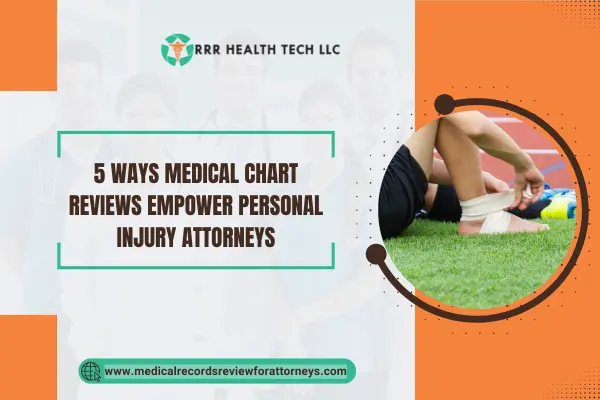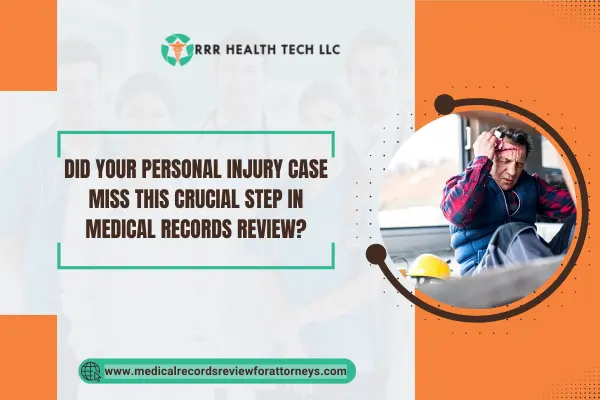
Traumatic brain injury (TBI) claims have gained popularity in the domain of personal injury practice. This is because they usually come with high medical bills and complex care provisions. From the attorneys’ perspective, advocating for such people is critical because the TBI victims should receive adequate compensation.
In this chapter, we will focus on the issues that are presented by TBI cases and how attorneys are integral in these types of claims. Furthermore, we will also provide an outline of every important stage of taking TBI claims from preliminary investigation to settlement.
Upon completion of this guide, it is expected that you will comprehend what TBI is, how it affects patients and their relatives, what laws are in place for this injury, and how best one can maneuver the process for filing a claim.
Explanation of Traumatic Brain Injury Including its Types
Traumatic Brain Injury (TBI) is characterized by external force impacting the head and resulting in damage to the brain. TBIs are classified based on severity as follows:
Mild TBI: This one is popularly known as concussion where the patient only suffers brief loss of consciousness repetitive headaches and dizziness.
Moderate to Severe TBI: Periods of unresponsiveness or disorientation usually follow, and this can be extended up too many days after the injury especially when the person suffers head impacts therefore causing illnesses of permanent loss of memory functions as well as other physical and mental incapacity.
Some Causes of Traumatic Brain Injury General Type
The places of origin of TBIs are rather limited. Mostly they include:
- Traffic accidents
- Slips and drips
- Sporting activities
- Overview of Symptoms
Overall symptoms are numerous and distinct, but they generally include the following:
- Headaches
- Tingling sensations
- Lapses in memory
- Knowing these factors helps attorneys handle TBI cases properly.
Traumatic Brain Injury Consequences for Victims and Their Families
TBIs are quite serious and sometimes there are dramatic long-term effects which include loss of brain functions and instability of the person. Memory loss, disorientation, attentional difficulties, etc. can develop and last for a long time, even for a lifetime which affects a person’s satisfaction with life.
Treatment of TBI is quite expensive. Costs for treatments, surgical procedures in the hospital, and subsequent medical support reach thousands of dollars. On top of that, families incur loss of income when TBI patients are unable to work which puts a further economic burden.
TBI survivors and their families also bear emotional changes in terms of mood swings, depressive episodes, and anxious feelings. These feelings of distress are additional problems for families that are trying to grapple with the impact of TBIs.
Legal Aspects of Traumatic Brain Injury Claims
About TBI claims, attorneys must have a considerable degree of knowledge concerning the legal context that surrounds TBI claims. It also necessitates knowledge of the appropriate laws and procedures that relate to the specific cases with this comprehensive guide.
Legal Terminology and Negligence-Proving Strategies
- Negligence: To be awarded damages in court for bladder dilation injury (TBI) negligence, a party must prove that the injury was caused by the acts of another party.
- Injury Proof: This is the evidence that goes into the body of the CTI, and this includes the medical proof of the extent of the brain injury as presented by experts.
Categories of Damages in Traumatic Brain Injury Cases
Economic Damages:
- Costs for treatment of injuries
- Income lost due to the injury
- Expenses for management of the pain or issues that may come up years after the injury
Non-Economic Damages:
- Pain and suffering
- Mental pain and emotional distress
- Loss of companionship
By comprehending these factors allows one to decipher the opaque areas of TBI claims so that justice is ensured on the victim’s side.
Evidence Gathering for Traumatic Brain Injury Claims
When it comes to proving the existence of TBI, medical records are very important. Many times, comprehensive reports from hospitals, nursing homes, and clinics paint the picture of how an injury affects a person. CT imaging or CAT scans and other neurological studies are far more obvious means of determining the injury.
Nonetheless, it should be borne in mind that obtaining such documentation should be done with care and consideration of laws on privacy, especially HIPAA. There is more information below that will clarify this.
Key Elements in Evidence Gathering:
- Medical Records: About all types of medical cases, all the medical records relating to all the procedures be it in an emergency room or after the patient is discharged are to be covered.
- Expert Testimony: Testimony by medical witnesses on the nature and degree of the injuries is crucial.
- Neurological Assessments: Perform a CT scan or any x-ray with an emphasis on showing the presence of some bleeding inside a head, or other such effects.
These components help build a robust case making it difficult for the attorneys for the defendants to challenge the extent of injury caused.
Navigating the Claims Process
There are such steps that lead to successful compliance with the claims process for cases of traumatic brain injury (TBI):
- Initial Consultation: It starts by reviewing documents relating to the event as well as injuries to know how wide the claim can be.
- Filing the Claim: All records including medical records and other evidence collated must be filed with the claim.
- Settlement Negotiations: Speak to all the parties involved including the insurer’s mediators who may employ tactics to reduce the amount of money to be paid out. Be ready to counter those hatefully.
- Legal Representation: Have strong representation to be able to deal with very complicated matters such as record retrieval, sorting indexing, and technical services.
- Resolution: Seek moderation compensation that will pay for severe TBI-related damages such as intracerebral hemorrhage in addition to also paying for both economic and non-economic damages.
Insurance companies often operate in such a way that they try to dispute the number of injuries or drag time with blur awards. Attorneys must plan and categorize the gathered tools which in this case must include such tools as aps summarization to fight such issues to make sure that clients are compensated.
Compensation in Traumatic Brain Injury Cases
You should know about the possible compensation types in TBI cases as much as your clients do. Here are certain types into which claims are structured:
- Economic Damages: Such damages are that has to do with medical treatment costs, and loss of income and encompasses expenses for the treatment that is going to take place in the future. Getting the jurors onto the stand, persuasive medical displays, and supplement indexes would be handled expertly.
- Non-Economic Damages: Among those being treated are mental agony, physical suffering, and the factors that annihilate the quality of life. That often requires some rather thorough deposition and narrative summaries not to leave anything out of the sufferer’s case.
- Future Medical Costs: All these entail chronic medical conditions and long-term care that there may be a need for, in the long run, one such condition being brain tissue damage and others. Recalling the long remote history of treatment and delivering rational forecasts needs to guide the workflow effectively.
In this case diagnosis matters because the accurate documentation and medical chronologies help in untangling the Traumatic Brain Injury TBI claims. None is the same hence the use of different points in calculating just compensation in such instances as road accidents, sports injuries, and so forth.
Wrapping Up
It is necessary to learn deep aspects concerning the nature of Traumatic Brain Injury TBI victims and their claims to present them in court. If you or someone you love has suffered a brain injury, consulting with an attorney can make a great difference in your chances of receiving fair compensation. The key stakeholders that all the examine should try to keep track of the trends in personal injury law related to TBIs developments, and the development and adoption of their practices.
Key Takeaways:
- TBI victim advocacy is of utmost importance.
- Stay current on developments in personal injury law.
- Reach out to attorneys as soon as possible.
Dealing with such comprehension of brain injury claims is not easy and sometimes it takes years. Knowledge is power, even in this demanding field of Traumatic Brain Injury TBI cases. All you must do is arm yourself with information and most importantly help your clients through the maze of TBI cases.
Conclusion
To succeed in a Traumatic Brain Injury TBI lawsuit, it’s essential to seek the expertise of medical professionals knowledgeable about traumatic brain injuries and related medical issues. Attorneys collaborate with these experts to review the claimant’s medical records, helping to assess the injury’s impact and future medical needs. This analysis plays a crucial role in settlement negotiations and court proceedings.
Ensure the best outcome for your TBI case—partner with expert medical professionals for a comprehensive analysis.
Contact us today!
Frequently Asked Questions ( FAQs )
What is meant by the term Traumatic Brain Injury (TBI)?
A Traumatic Brain Injury (TBI) represents damage to the brain caused by external force and can be as mild as a concussion or as serious as brain injuries. TBI’s reasons can be counted, for example, among traffic accidents, falls or sports injuries. TBIs can lead to cognitive, physical and emotional symptoms that affect the individual.
What are the common symptoms of TBI?
Headaches, confusion, right-sided dizziness, contention memory and ability, fluctuations in behavior, depression, anxiety, etc. Some of these symptoms are very common after TBI and vary in detail from mild or severe classification of injury, but they are potential hazards in brain functions and emotions for administrators.


